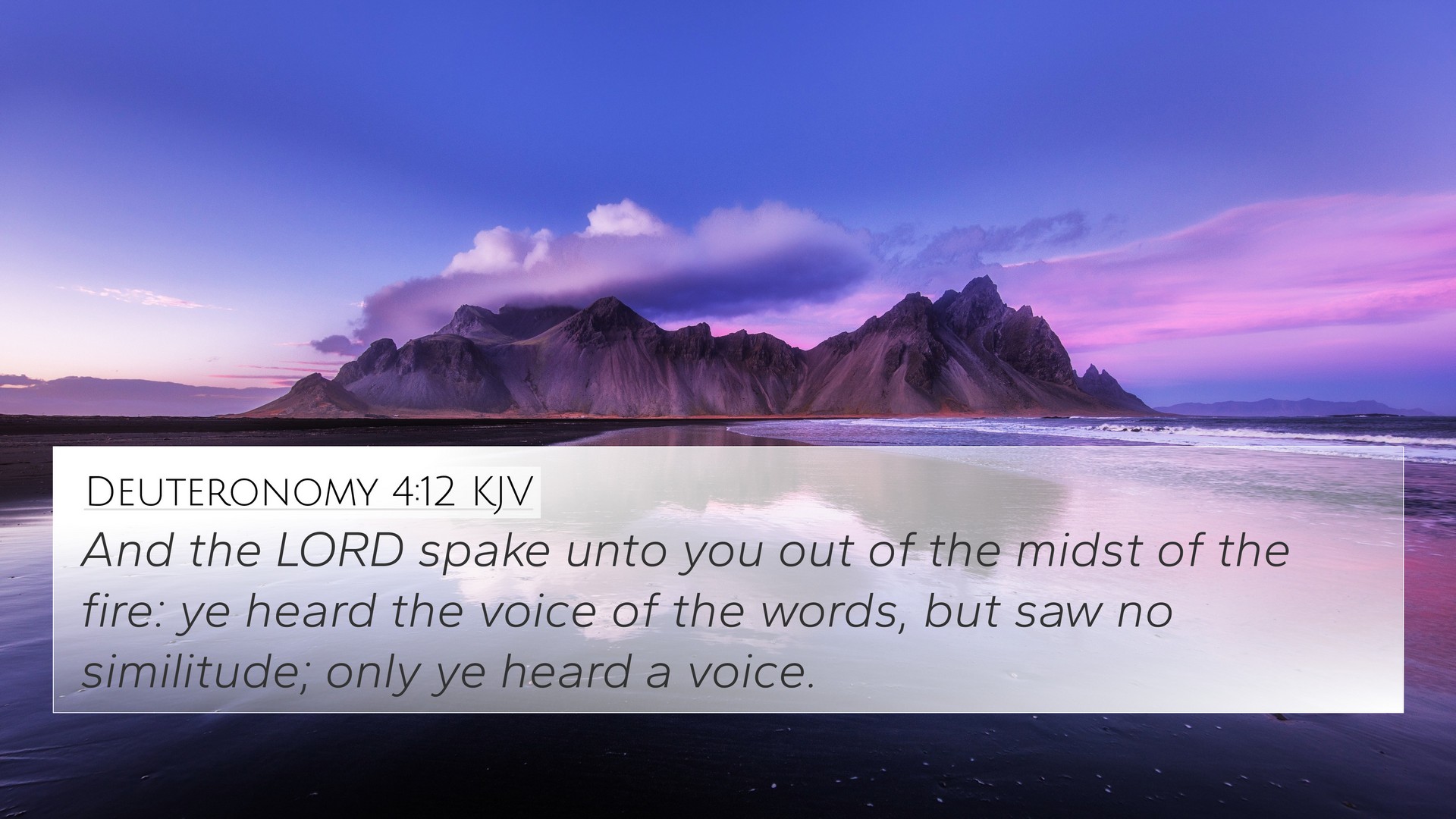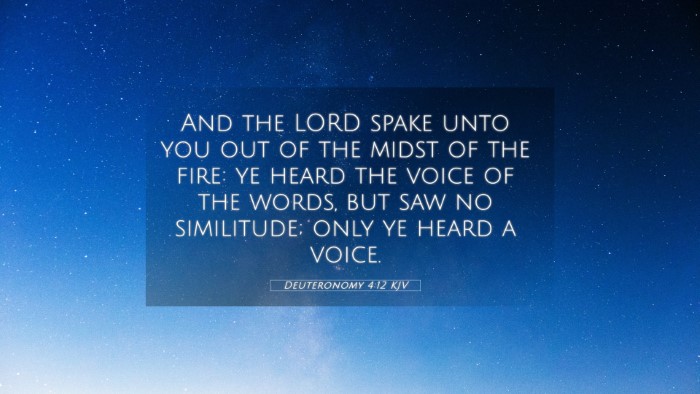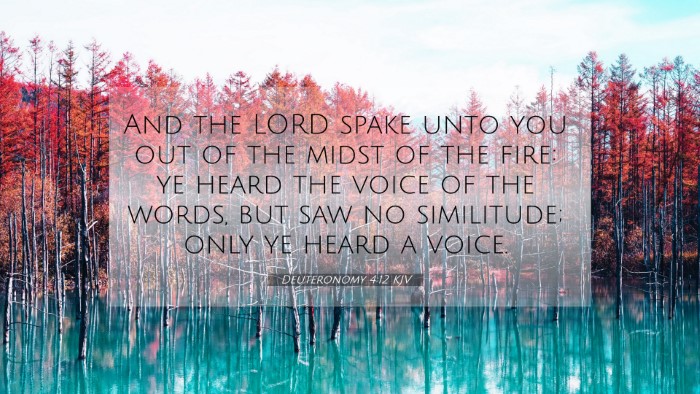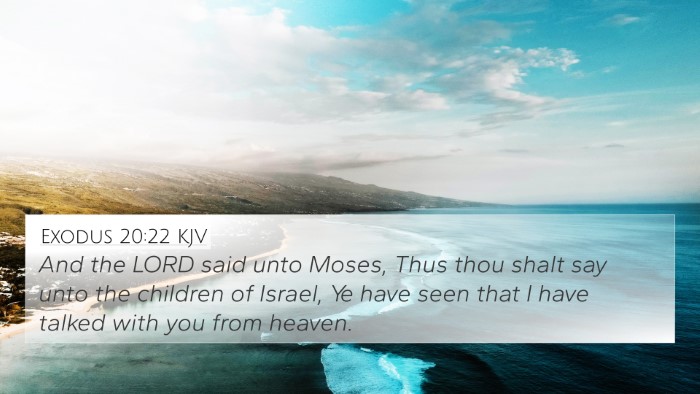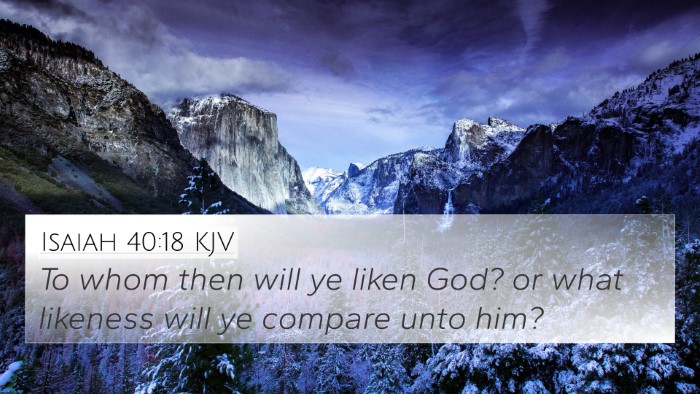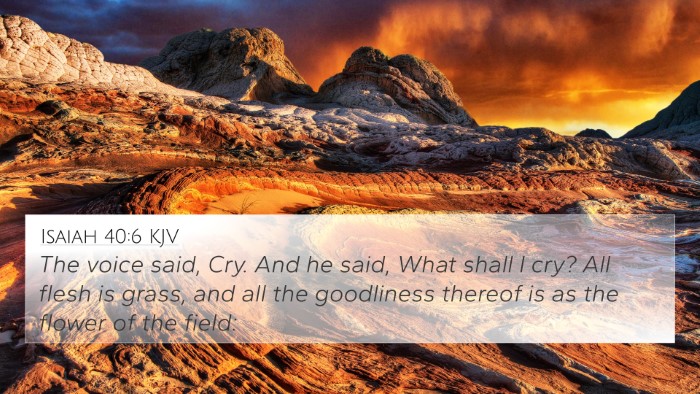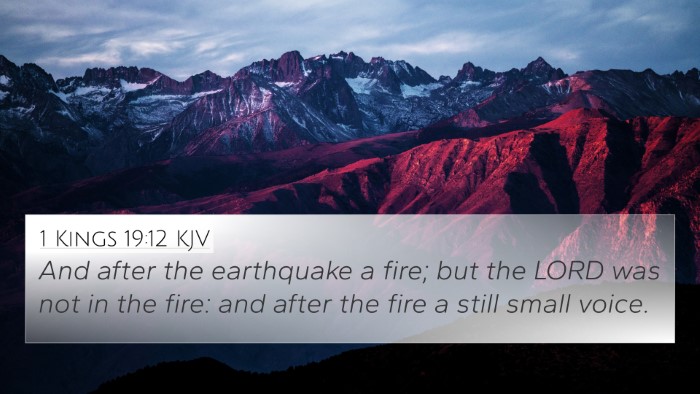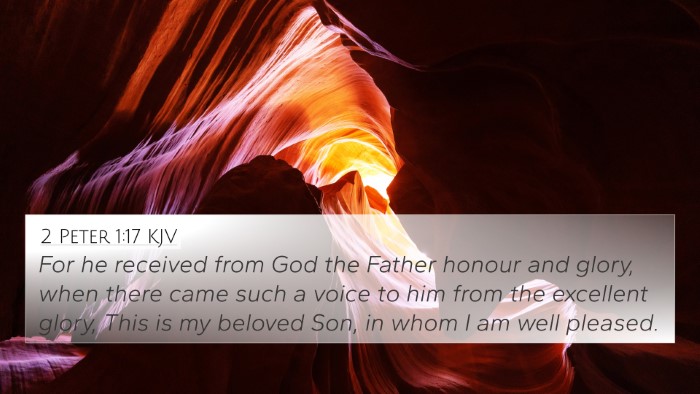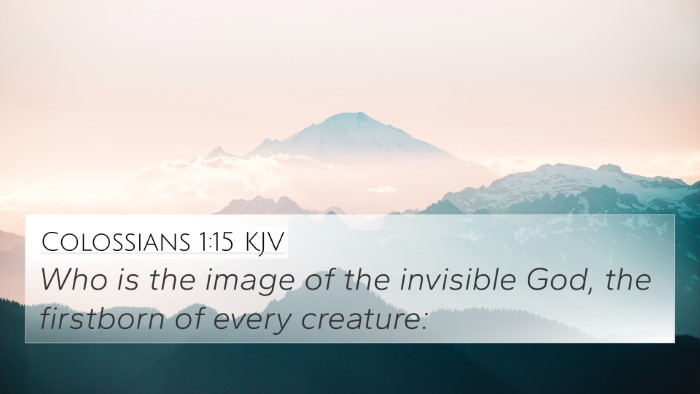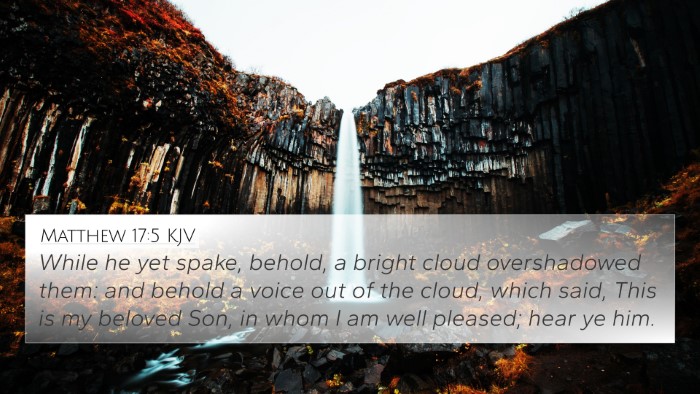Understanding Deuteronomy 4:12
Verse: "And the Lord spake unto you out of the midst of the fire: ye heard the voice of the words, but saw no similitude; only ye heard a voice."
Summary and Analysis
Deuteronomy 4:12 emphasizes the unique experience of the Israelites during the revelation at Mount Sinai. This verse highlights the distinction between hearing and seeing in a divine encounter, indicating that while the Israelites received God's commandments audibly, they did not perceive any physical manifestation accompanying God’s voice.
Commentary Insights
Insights from various public domain commentaries enrich our understanding of this verse:
-
Matthew Henry:
Henry notes that God's communication to His people avoids physical representations to emphasize His transcendence. This absence of a visible form served to teach the Israelites about the uniqueness of God's nature. God is a spirit, and thus the lack of concrete imagery reinforces the importance of faith and obedience to His spoken word.
-
Albert Barnes:
Barnes elaborates on the auditory experience of the Israelites, suggesting that it was designed to be a direct and intimate conversation between God and His people. The text indicates that the emphasis on hearing protects against idolatry, teaching true worship without images as prescribed in the Ten Commandments.
-
Adam Clarke:
Clarke points out the implications of God's voice without sight. He emphasizes that this aligns with theological principles found throughout Scripture, where God often communicates in ways that compel His followers to trust in His word rather than in their perceptions. He connects this moment to other examples in the Scriptures where God’s presence is felt rather than seen.
Key Themes
This verse encapsulates several significant themes within scripture:
- The Nature of God: Throughout the Bible, God's essence as formless and spiritual is reiterated, reinforcing the understanding of divine revelation.
- The Importance of Faith: This passage invites believers to trust in the word of God despite the lack of physical evidence.
- Contrast with Idolatry: It serves as a declaration against forming physical idols, aligning with the commandments given shortly thereafter.
Bible Cross-References
Deuteronomy 4:12 is intertwined with several other biblical texts that enrich its meaning:
- Exodus 20:18-21: The Israelites' fear and trembling at Mount Sinai when they heard God's voice.
- 1 Timothy 1:17: Acknowledging the invisible nature of God, as He is eternal and immortal.
- John 4:24: “God is a Spirit: and they that worship him must worship him in spirit and in truth.”
- Romans 10:17: “So then faith cometh by hearing, and hearing by the word of God.”
- Hebrews 12:18-21: The comparison between the physical manifestations at Sinai and the spiritual kingdom of God.
- Deuteronomy 4:15: A warning against making graven images, which directly relates to the concept of seeing no similitude.
- Acts 7:31-33: Stephen’s recounting of the encounter at the burning bush, where God's voice is heard but not seen.
Connections to Other Bible Verses
Through comparative Bible verse analysis, we observe how Deuteronomy 4:12 links with various scriptures, shedding light on the broader biblical narrative:
- Philippians 2:9-11: Acknowledges the authority of Jesus' name as proclaimed by God without any physical form.
- Revelation 1:8: The declaration of the eternal nature of God, which aligns with the formlessness mentioned in Deuteronomy.
- Psalm 29:4: The voice of the Lord is powerful, underscoring the significance of God’s spoken word.
Conclusion
Deuteronomy 4:12 invites deep reflection on the nature of divine communication, highlighting the importance of listening to God's words while acknowledging His transcendent, non-physical essence. Engaging with various commentaries and cross-referencing Scripture enriches our understanding of this profound biblical truth.
Tools for Bible Cross-Referencing
To delve deeper into the connections within the Bible and enhance one’s study, consider utilizing:
- Bible concordance for easy reference to similar verses.
- Bible cross-reference guides that provide thematic studies.
- Cross-reference Bible study methods that enable a systematic exploration of biblical connections.
Incorporating such tools can significantly enhance sermon preparation and personal study, fostering a richer understanding and appreciation of scriptural cross-references.
